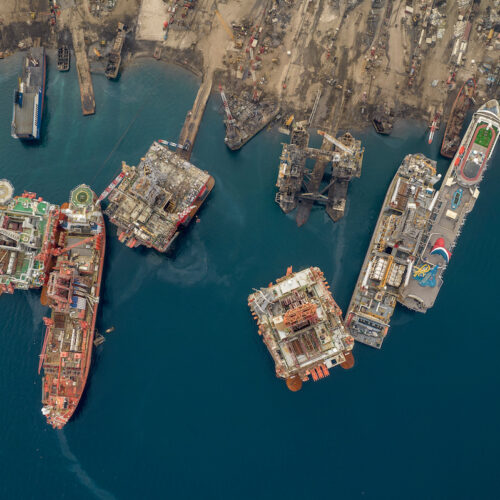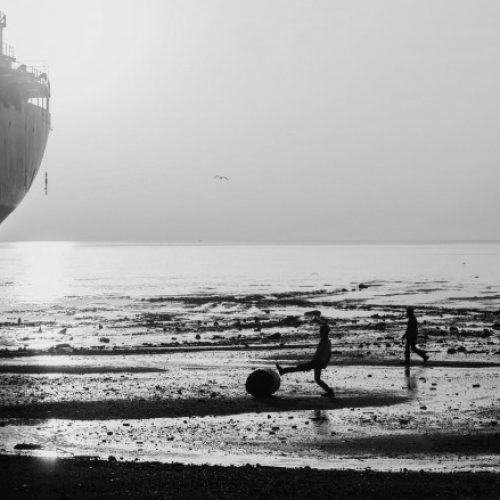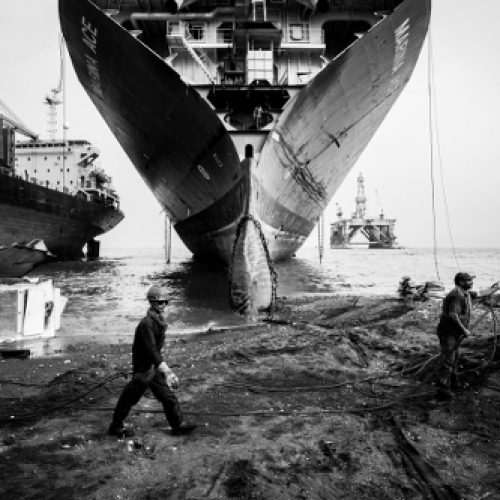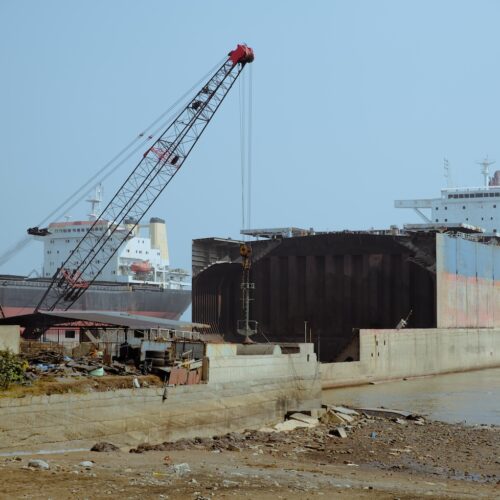Press Release – NGOs call on the Netherlands to push for the safe and environmentally sound recycling of FSO Safer
As the operations for the removal of the oil on-board the decaying Floating Storage and Offloading (FSO) vessel SAFER are taking place off the coast of Yemen, the UNDP is looking for a destination for the FSO’s recycling. NGOs have urged the UNDP to find a solution that effectively addresses the inherent risks associated with the dismantling process and the management of the hazardous materials that will remain on-board. Now, they are calling on the Dutch government, one of the biggest donors to the Stop Red Sea Oil Pollution operation, to follow suit and assist UNDP in identifying a suitable recycling facility.
The Netherlands has shown leadership in preventing the environmental disaster an oil spill from the FSO Safer would have caused, with also Dutch company Boskalis, via its subsidiary SMIT Salvage, tasked with the removal of the oil from the FSO. Referring to Dutch involvement in the Stop Red Sea Oil Pollution operation, Dutch Minister for Foreign Trade and Development Cooperation, Liesje Schreinemacher, announced that “The Netherlands will continue helping the UN to bring this to a good end.”

Shipping broker Clarkson, on behalf of the UNDP, has already received bids for the towing and scrapping of the vessel. The NGOs have urged UNDP to comply with international waste law and opt for a final destination that can guarantee practices beyond the weak standards set by the International Maritime Organisation’s Hong Kong Convention [1], and are aware that alternative and more sustainable solutions off the beach are at the UNDP’s disposal.
NOTES
[1] Several yards located on the beaches in India and Bangladesh and major cash buyers, which regularly sell end-of-life vessels for dirty and dangerous shipbreaking, have shown interest in scrapping the FSO SAFER. Facilities that practice the beaching method have a documented lack of capacity to ensure the environmentally sound management of hazardous wastes and are therefore likely to offer the highest price for the asset, leaving workers, local communities and the environment to pay the price of toxic exposure.
Related news

Press Release – Ship recycling in Aliağa under the spotlight
Our new report Ship Recycling in Turkey provides a comprehensive analysis of the current challenges faced by the ship recycling sector in Aliağa and also underscores the immense potential for driving forward sustainable practices.
... Read More
Platform News – UN Special Rapporteur concerned about German shipbreaking practices
In a written submission to the German Government, UN Special Rapporteur Baskut Tuncak has expressed serious concerns related to the substandard shipbreaking practices of German ship owners,… Read More

Press Release – Platform supports banks’ introduction of responsible ship recycling standards
Today, during the first day of NOR-Shipping in Oslo, Dutch banks ABN AMRO, ING Bank and NIBC, together with the Scandinavian DNB, announced that they are… Read More

Press Release – Maersk end-of-life vessels to hit the beaches again. NGOs denounce container ship company’s step back to boost profits
The NGO Shipbreaking Platform and Transport and Environment (T&E) denounce Maersk Group’s decision to beach their end-of-life vessels in India [1]. The world’s leading container ship owner… Read More

Platform News – Indian NGOs voice concerns as ship owners promote beaching
Indian NGOs voice serious concerns regarding the beaching of end-of-life vessels in Alang in reaction to the recent visit to the Alang shipbreaking yards organised by ECSA… Read More

Press Release – Platform publishes list of ships dismantled worldwide in 2023
In 2023, 325 large tankers, bulkers, floating platforms, cargo- and passenger ships ended up for dirty and dangerous breaking on beaches in Bangladesh, India and Pakistan.
... Read More

